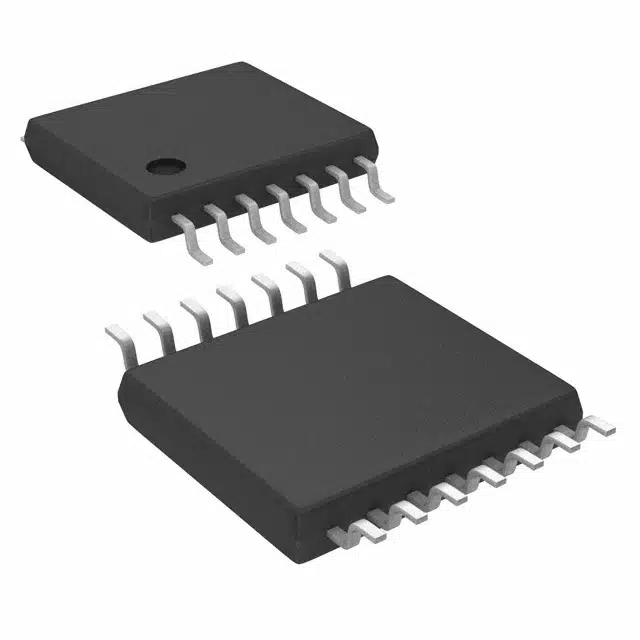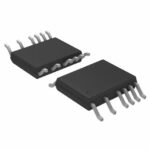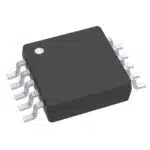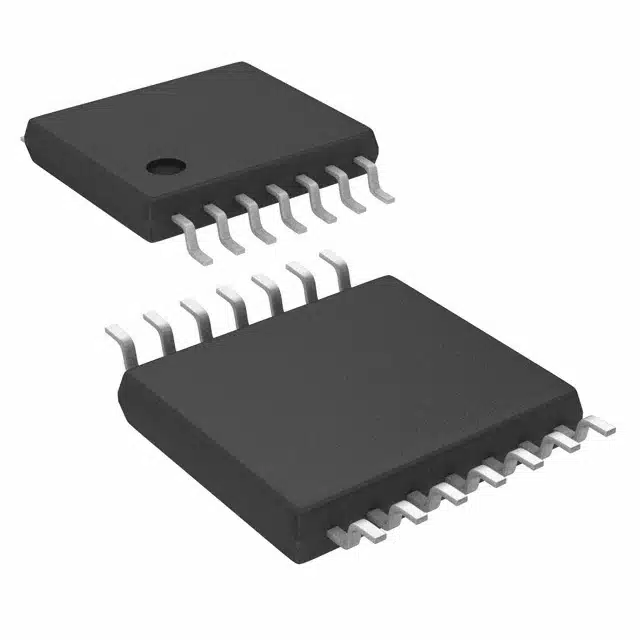
The MAX31856MUD+ simplifies temperature measurements in food processing by offering precision and versatility. Its compatibility with various thermocouple types ensures accurate monitoring across cooking, storage, and transport stages. Proper temperature control is essential for food safety and quality. It prevents contamination, maintains freshness, and reduces risks of spoilage. Businesses using the MAX31856 comply with safety regulations while avoiding costly recalls. Chefs and manufacturers rely on this device to automate processes and ensure consistent results. The MAX31856 integrates seamlessly into systems, making it an indispensable tool for modern food processing environments.
Key Takeaways
-
The MAX31856MUD+ gives accurate temperature readings, important for food safety.
-
It works with different thermocouple types, so users can pick the best one.
-
Cold-junction compensation makes readings better by fixing temperature changes.
-
Checking and calibrating the MAX31856MUD+ often keeps it working well.
-
Adding the MAX31856MUD+ to machines helps work faster and avoids mistakes.
Key Features of the MAX31856MUD+
Thermocouple Compatibility and Temperature Range
The MAX31856MUD+ supports a wide range of thermocouple types, making it a versatile choice for food processing applications. This flexibility allows users to select the most suitable thermocouple for their specific needs. Supported types include K, J, T, N, S, R, E, and B. Each type offers unique performance characteristics, ensuring compatibility with diverse temperature measurement requirements. For instance:
-
Type K thermocouples are ideal for general-purpose use.
-
Type T thermocouples excel in low-temperature environments.
-
Type S thermocouples handle extremely high temperatures effectively.
The MAX31856 thermocouple amplifier operates across a broad temperature range, from -270°C to +1800°C, depending on the thermocouple type. This capability ensures accurate temperature monitoring in both freezing and high-heat conditions. The table below highlights its specifications:
|
Feature |
Specification |
|---|---|
|
Temperature Range |
-270°C to +1800°C |
|
Application |
Food processing |
This extensive range makes the MAX31856 suitable for monitoring ovens, freezers, and other critical food processing equipment.
High Accuracy and Resolution
The MAX31856 thermocouple amplifier delivers exceptional accuracy and resolution, ensuring precise readings in food processing environments. It features a temperature resolution of 0.0078125°C, enabling users to detect even the smallest temperature variations. The device achieves an accuracy of ±0.25°C, which is crucial for maintaining food safety and quality.
Additional features, such as a 14-bit ADC resolution and integrated linearization coefficients, further enhance its performance. These capabilities allow the MAX31856 to provide reliable and consistent results, even in challenging conditions. The following table summarizes its high-accuracy features:
|
Feature |
Specification |
|---|---|
|
Cold-junction compensation |
Yes |
|
ADC resolution |
14-bit |
|
Communication interface |
SPI |
|
Thermocouple break detection |
Yes |
|
Temperature range |
-270°C to +1800°C |
|
Noise |
0.15°C RMS |
|
Accuracy |
±0.25°C |
|
Integrated linearization coefficients |
Yes |
These specifications make the MAX31856 an excellent choice for applications requiring accurate temperature control.
Cold-Junction Compensation and Fault Detection
Cold-junction compensation is a critical feature of the MAX31856MUD+. It adjusts the voltage from the thermocouple to account for the temperature at the cold junction. This adjustment ensures precise readings at the hot end, even when the cold end is not at 0°C (32°F). By compensating for the missing thermoelectric voltage, the device enhances the reliability of temperature measurements.
The MAX31856 also includes fault detection capabilities, such as thermocouple break detection. This feature alerts users to potential issues, ensuring uninterrupted operation. Additionally, the device offers protection against overvoltage conditions up to ±45V, increasing its durability in demanding environments. These features make the MAX31856MUD+ a robust and reliable temperature sensor for food processing applications.
Robust Design for Food Processing Environments
The MAX31856 offers a robust design tailored for demanding food processing environments. Its construction ensures durability and reliability, even in challenging conditions. Food processing facilities often expose equipment to moisture, dust, and temperature fluctuations. The MAX31856 withstands these factors, maintaining consistent performance over time.
The device features a compact form factor, making it easy to integrate into existing systems. Its rugged design resists physical damage, ensuring long-term usability. Engineers can rely on its ability to operate in environments where other sensors might fail. This reliability reduces downtime and maintenance costs, which are critical in high-volume food production.
The MAX31856 includes advanced protection mechanisms. It can handle overvoltage conditions up to ±45V, safeguarding the device from electrical surges. This feature enhances its resilience in industrial settings. Additionally, its fault detection capabilities, such as thermocouple break detection, ensure uninterrupted operation. These features make it a dependable choice for monitoring critical processes like cooking, freezing, and storage.
The device’s compatibility with multiple thermocouple types further enhances its versatility. Users can select the appropriate thermocouple for their specific application, whether monitoring high-heat ovens or low-temperature freezers. This adaptability ensures accurate readings across a wide range of conditions.
In food processing, maintaining hygiene is essential. The MAX31856’s design supports easy cleaning and sterilization, meeting industry standards for cleanliness. Its robust construction and advanced features make it an ideal solution for ensuring food safety and quality in modern processing environments.
Tip: Regular calibration of the MAX31856 ensures optimal performance and accuracy in food processing applications.
Setting Up the MAX31856MUD+
Connecting to Microcontrollers via SPI
The MAX31856 connects to microcontrollers using the Serial Peripheral Interface (SPI). This communication protocol ensures fast and reliable data transfer between the device and the microcontroller. Engineers can use the SPI interface to send commands and retrieve temperature readings from the thermocouple.
To establish the connection, users need to connect the MAX31856’s SPI pins to the corresponding pins on the microcontroller. These include the Chip Select (CS), Serial Clock (SCK), Master Out Slave In (MOSI), and Master In Slave Out (MISO) pins. Proper wiring ensures seamless communication.
Below is an example of how to connect the MAX31856 to a microcontroller:
|
MAX31856 Pin |
Microcontroller Pin |
|---|---|
|
CS |
GPIO (Chip Select) |
|
SCK |
SPI Clock |
|
MOSI |
SPI Data Out |
|
MISO |
SPI Data In |
After connecting the pins, users must configure the SPI settings in the microcontroller’s software. These settings include the clock polarity, clock phase, and data rate. Following the manufacturer’s guidelines ensures optimal performance.
Required Software and Libraries
Setting up the MAX31856 requires specific software and libraries. Developers can use libraries compatible with their microcontroller platform, such as Arduino or Raspberry Pi. These libraries simplify communication with the thermocouple to digital converter and reduce development time.
For Arduino users, the Adafruit MAX31856 library is a popular choice. It provides functions to initialize the device, read temperature data, and handle errors. Raspberry Pi users can use Python libraries like SPIdev to interact with the MAX31856.
Installing these libraries is straightforward. For Arduino, users can search for the library in the Library Manager and click “Install.” Raspberry Pi users can install Python libraries using the pip command. Proper installation ensures smooth integration of the MAX31856 into the system.
Calibration and Testing for Food Processing
Calibration is essential for accurate temperature measurements in food processing. Users must calibrate the MAX31856 to ensure it provides precise readings. This process involves comparing the device’s output with a reference thermometer and adjusting the settings as needed.
Testing the MAX31856 in real-world conditions is equally important. Users should simulate food processing scenarios, such as monitoring oven or freezer temperatures, to verify the device’s performance. Regular testing ensures the thermocouple to digital converter operates reliably over time.
Tip: Use a high-quality reference thermometer during calibration to achieve the best results.
By following these steps, users can set up the MAX31856 effectively and ensure accurate temperature monitoring in food processing environments.
Practical Applications of the MAX31856MUD+ in Food Processing
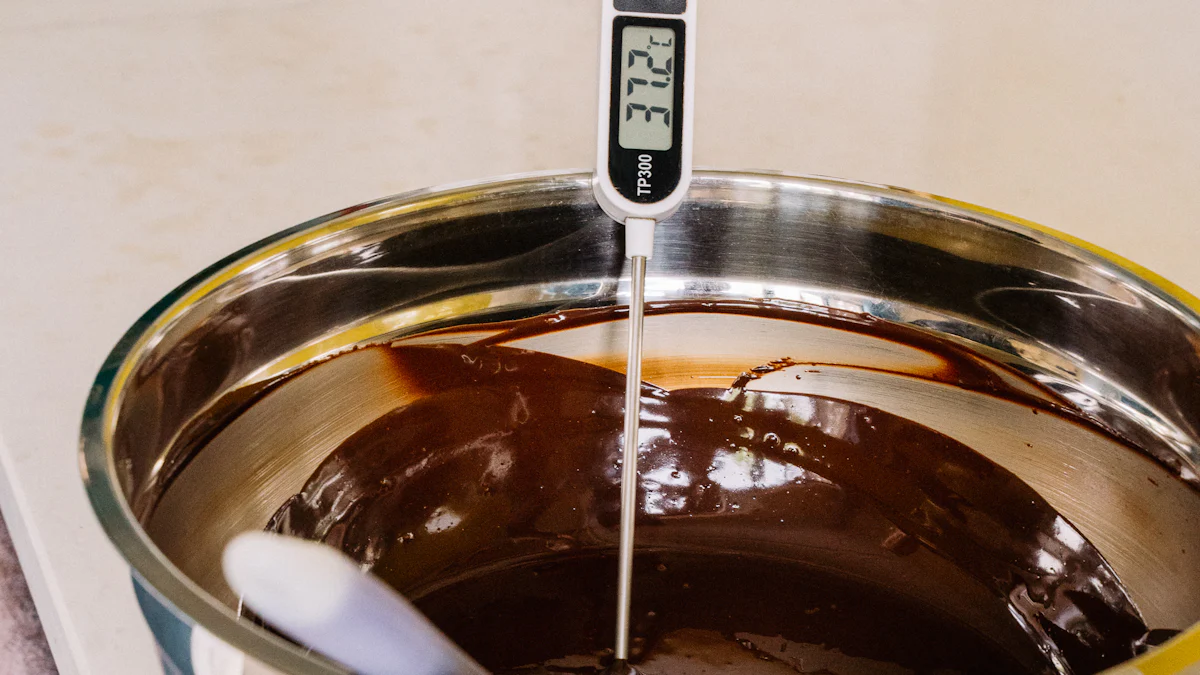
Monitoring Cooking and Storage Temperatures
The MAX31856MUD+ plays a vital role in monitoring cooking and storage temperatures in food processing. Accurate temperature monitoring ensures that food remains safe and maintains its quality throughout the production process. The device supports various thermocouple types, making it suitable for diverse applications.
The table below highlights common use cases:
|
Application Type |
Description |
|---|---|
|
Cooking Temperature Control |
Used in systems to monitor and control cooking temperatures accurately. |
|
Food Storage Monitoring |
Suitable for ensuring proper storage temperatures in food safety applications. |
|
Data Logging |
Employed in data loggers for tracking temperature over time in various environments. |
By integrating the MAX31856, food processors can monitor ovens, freezers, and refrigerators with precision. This capability helps maintain optimal conditions for cooking and storage, reducing the risk of spoilage.
Ensuring Food Safety and Regulatory Compliance
Food safety is a top priority in the food industry. The MAX31856 ensures compliance with industry standards by providing precise temperature monitoring. Its features, such as cold-junction compensation and high resolution, align with strict regulatory requirements.
The table below outlines how the MAX31856 meets these standards:
|
Feature |
Specification |
|---|---|
|
Temperature Resolution |
0.0078125°C |
|
Temperature Range |
-210°C to +1800°C |
|
Cold-Junction Compensation |
Yes |
|
Thermocouple Compatibility |
Various types |
These specifications make the MAX31856 an ideal choice for maintaining food safety. It helps processors meet regulations while ensuring that food remains safe for consumption.
Automating Temperature Control in Production Lines
Automation is essential in modern food processing. The MAX31856 simplifies temperature control in production lines by integrating seamlessly with automated systems. Its SPI interface allows easy communication with microcontrollers, enabling real-time adjustments.
By automating temperature control, food processors can improve efficiency and consistency. The MAX31856 ensures that cooking and storage conditions remain within safe limits, reducing human error. This automation enhances productivity while maintaining high standards of food safety.
Note: Automating temperature control with the MAX31856 reduces downtime and improves overall operational efficiency.
Tips for Optimizing the MAX31856MUD+ in Food Processing
Enhancing Stability and Accuracy
Optimizing the MAX31856MUD+ begins with enhancing its stability and accuracy. Food processors can achieve this by leveraging the device’s built-in features. Cold-junction compensation plays a vital role in maintaining accuracy by adjusting for temperature variations at the junction. High accuracy ensures precise readings, which are critical for food safety. Additionally, the device’s low-noise design minimizes interference, improving measurement reliability.
The table below highlights these features:
|
Feature |
Description |
|---|---|
|
Cold-Junction Compensation |
Compensates for temperature variations at the junction, improving accuracy. |
|
High Accuracy |
Provides precise temperature readings, essential for food processing. |
|
Low Noise |
Reduces interference, enhancing measurement reliability. |
Regular calibration further enhances accuracy. Using a high-quality reference thermometer during calibration ensures the device performs optimally in food processing environments.
Protecting the Device in Harsh Environments
Food processing environments often expose equipment to moisture, dust, and temperature fluctuations. Protecting the MAX31856MUD+ from these elements ensures long-term reliability. Encasing the device in a protective housing shields it from physical damage and environmental factors. Selecting thermocouples with durable insulation materials also enhances protection.
Proper installation reduces the risk of electrical surges. The MAX31856MUD+ already includes overvoltage protection up to ±45V, but additional surge protectors can provide an extra layer of safety. Regular maintenance, such as cleaning and inspecting connections, ensures the device operates without interruptions.
Leveraging Advanced Features for Efficiency
The MAX31856MUD+ includes advanced features that improve efficiency in food processing. Built-in cold-junction compensation ensures accurate readings by adjusting for temperature differences at the connection point. The SPI interface facilitates fast communication with microcontrollers, enabling real-time adjustments. Noise rejection minimizes interference, leading to more reliable data.
The table below summarizes these features:
|
Feature |
Description |
|---|---|
|
Built-in cold-junction compensation |
Ensures accurate temperature readings by compensating for temperature differences at the connection point. |
|
High accuracy |
Provides precise temperature measurements, crucial for food safety and quality. |
|
Noise rejection |
Minimizes interference, leading to more reliable data. |
|
SPI interface |
Facilitates fast communication with microcontrollers, enhancing response times in processing applications. |
|
Alert function |
Detects faults, allowing for immediate corrective actions to maintain efficiency. |
By leveraging these features, food processors can automate temperature control, reduce downtime, and maintain consistent product quality.
The MAX31856MUD+ stands out as a vital tool for food processors, offering unmatched precision and reliability. Its advanced features, such as cold-junction compensation and thermocouple break detection, ensure accurate temperature readings across a wide range of applications. The table below highlights its key features:
|
Feature |
Description |
|---|---|
|
Cold-junction compensation |
Yes |
|
ADC resolution |
14-bit |
|
Communication interface |
SPI |
|
Thermocouple break detection |
Yes |
|
Temperature range |
-270°C to +1800°C |
|
Noise level |
0.15°C RMS |
|
Accuracy |
±0.25°C |
|
Integrated linearization |
Yes |
This device proves suitable for various uses, including:
-
Temperature controllers in production lines.
-
Data loggers for monitoring storage conditions.
-
Thermal management systems in food processing.
By leveraging these capabilities and following best practices, food processors can maintain safety, meet regulatory standards, and optimize operational efficiency.
What is the primary purpose of the MAX31856MUD+ in food processing?
The MAX31856MUD+ measures temperatures with precision in food processing. It ensures accurate monitoring of cooking, freezing, and storage conditions. This helps maintain food safety and quality while meeting regulatory standards.
How does the MAX31856MUD+ ensure accurate temperature readings?
The device uses cold-junction compensation to adjust for temperature variations at the connection point. It also features a high-resolution ADC and integrated linearization coefficients, ensuring precise and reliable readings.
Can the MAX31856MUD+ handle extreme temperatures?
Yes, the MAX31856MUD+ supports a wide temperature range from -270°C to +1800°C, depending on the thermocouple type. This makes it suitable for both freezing and high-heat applications in food processing.
What thermocouple types are compatible with the MAX31856MUD+?
The MAX31856MUD+ supports multiple thermocouple types, including K, J, T, N, S, R, E, and B. This versatility allows users to select the best option for their specific application.
Is the MAX31856MUD+ easy to integrate into existing systems?
Yes, the MAX31856MUD+ connects to microcontrollers via SPI, a standard communication protocol. Developers can use readily available libraries to simplify integration and reduce setup time.
See Also
Understanding MC9S12DJ256MFUE Specs for Automotive Use
Three Effective Methods to Incorporate MC9S12XET512VAG
Simple Guide to Integrating SN74LVC4245APW Sensors
Three Key Benefits of ATIC83E2 in Industrial Automation
Enhancing Process Control with AD74413RBCPZ Insights
